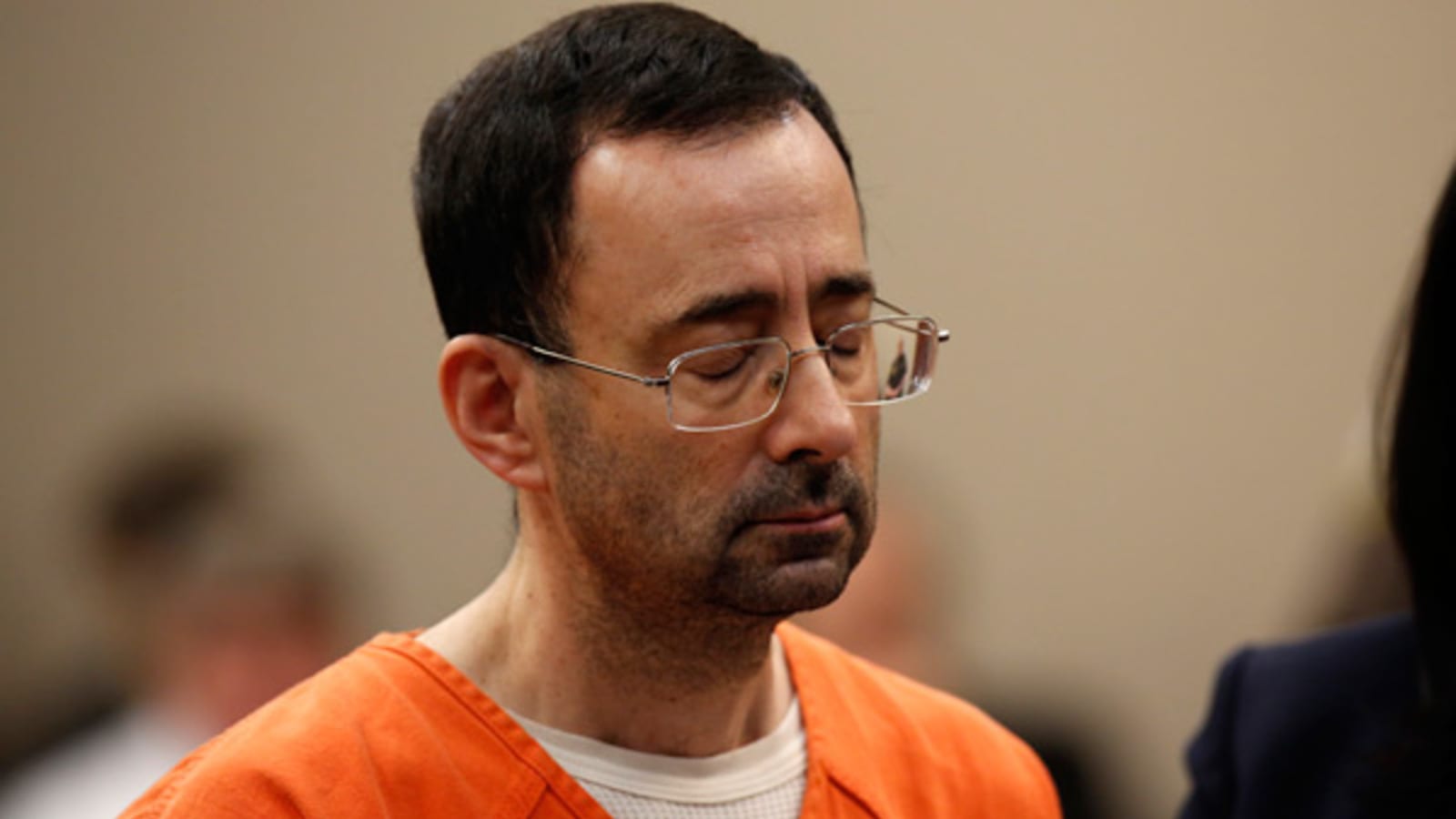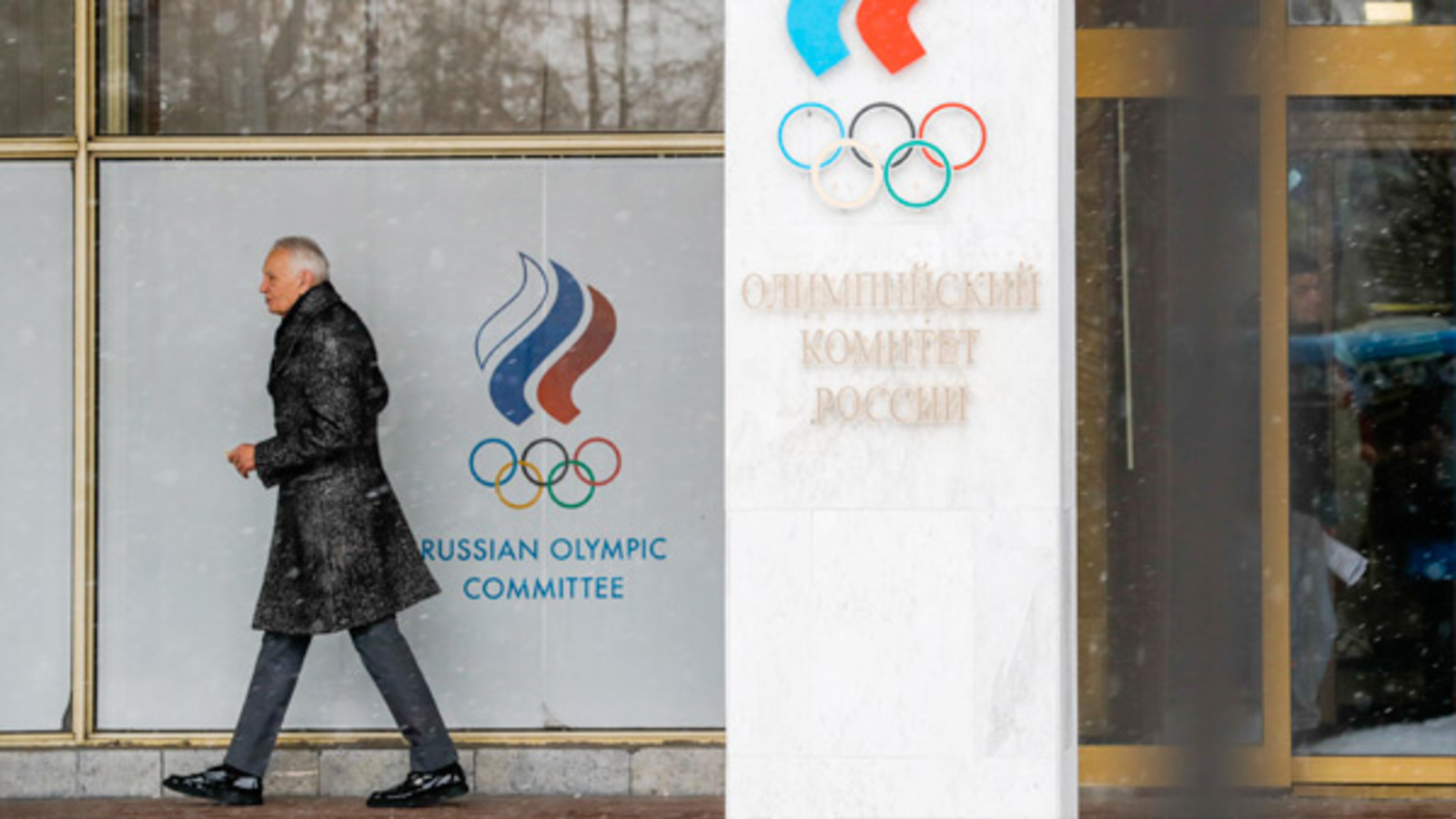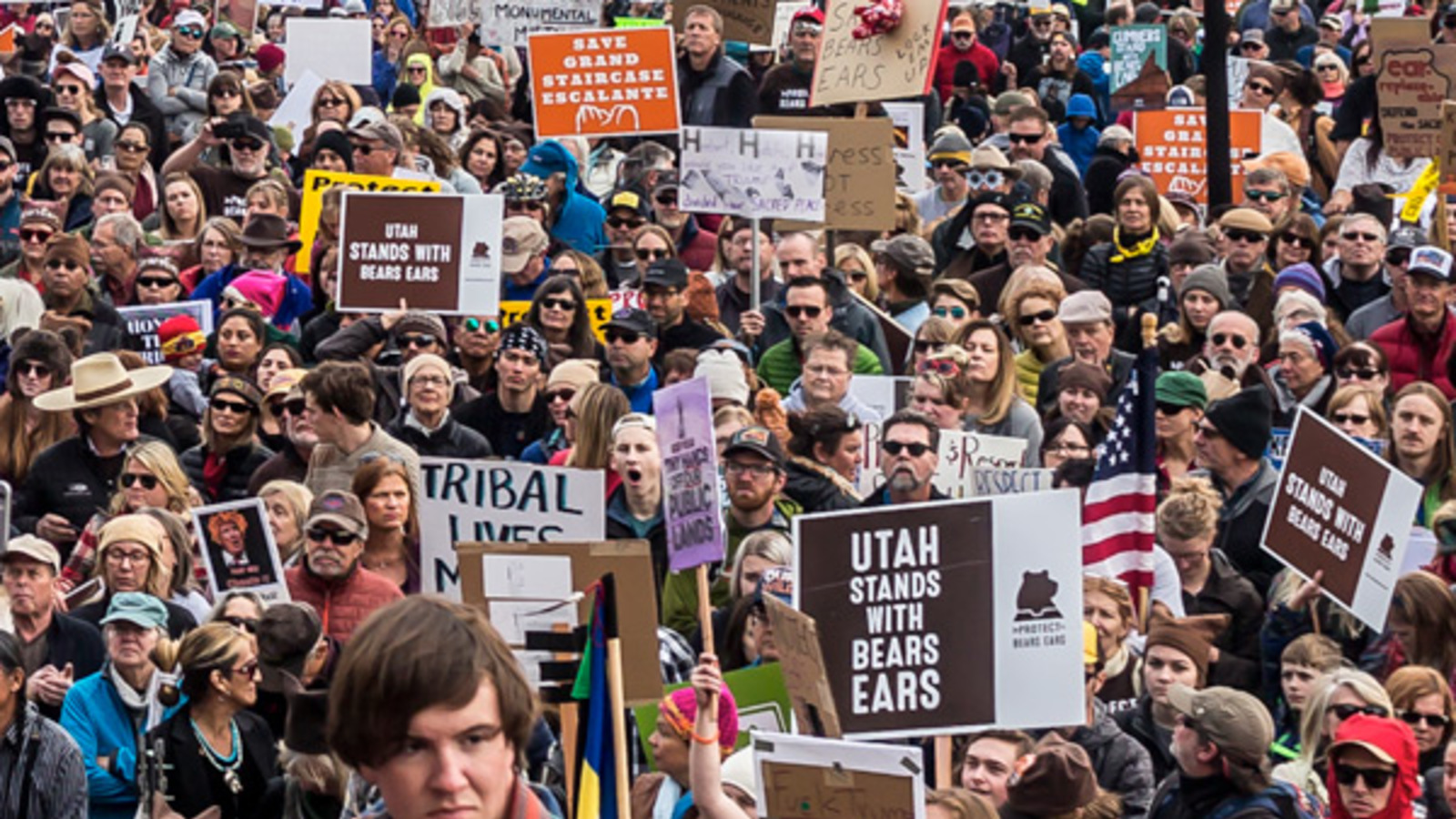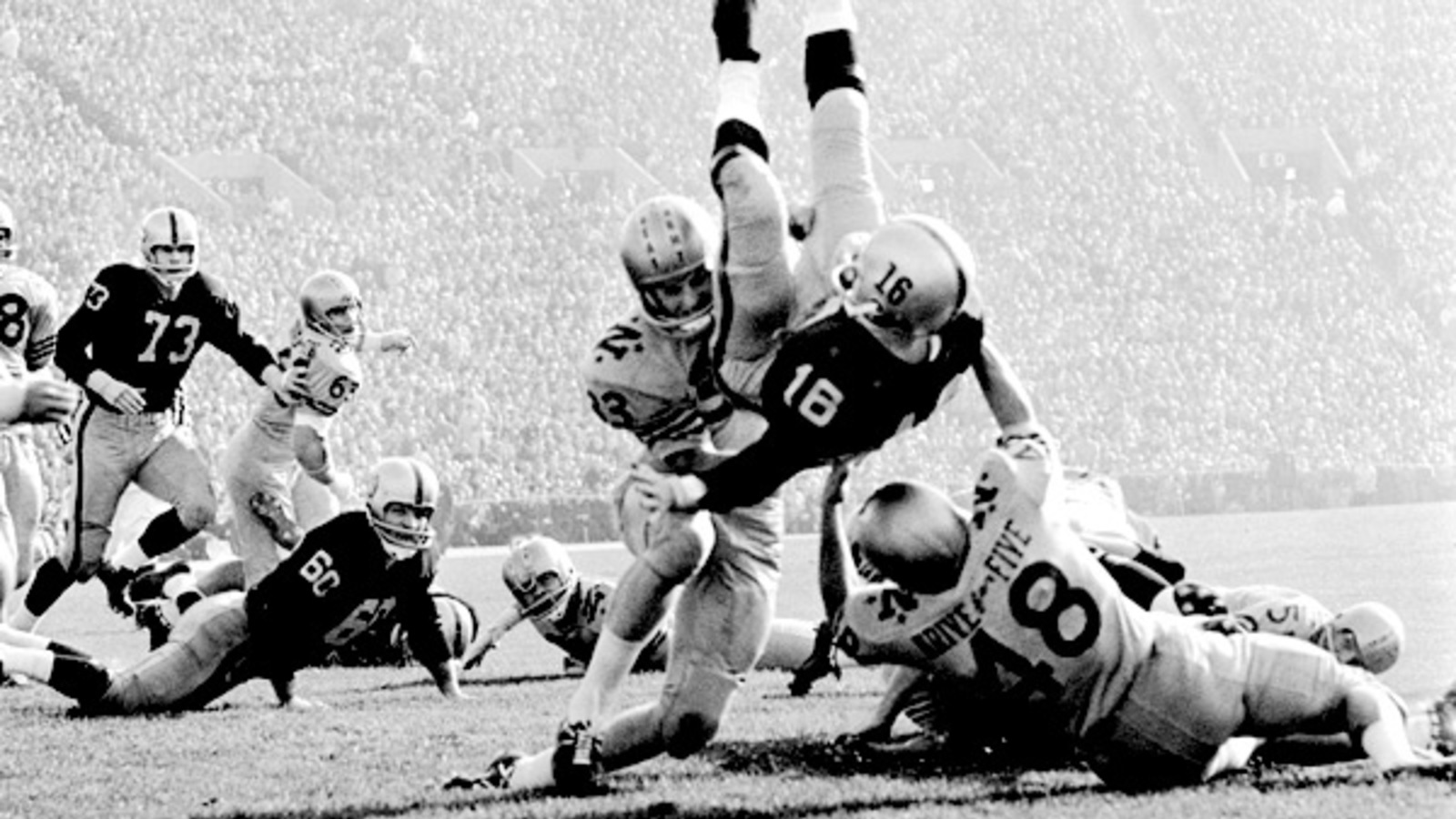
Sports & Politics Intersect: When Olympic gold corrupts
Front Five: The top stories that shaped both sports & politics this week
“I fear that there are still people working at these organizations who put money, medals and reputation above the safety of athletes.” - Aly Raisman on the institutions that enabled Larry Nassar’s sexual predation
Larry Nassar, former trainer with USA Gymnastics and a doctor at Michigan State University, will ostensibly spend the rest of his life in prison after receiving a 60-year federal prison sentence after a child pornography conviction. The 54-year-old has also pled guilty to ten counts of sexual assault and is awaiting two sentence hearings for those crimes.
More than 150 women and girls have filed complaints against Nassar over the years, and while his sentencing is a huge win in terms of taking the freedom away from a sexual predator and child molestor, victims and their families aren’t willing to stop there. While Nassar’s disgusting crimes destroyed the lives of many, the institutions that allowed him to continue working with both USA Gymnastics and MSU are almost as terrible for allowing such vile actions against those with no means to protect themselves.
Nassar’s crimes go all the way back to 1994, when a gymnast — who eventually goes on to become an Olympic medalist — says in a lawsuit that Nassar sexually abused her from 1994 until 2000. In 1998, Nassar began sexual abusing the six-year-old daughter of a family friend “every other week for five years.” That same year, the first of several student-athletes at MSU reports concerns about Nassar to trainers and coaches. No action was taken. These stories continue fairly consistently at both USA Olympics and MSU for more than two decades before action is finally started to be taken against Nassar.
Because of the negligence from USA Gymnastics, a lawsuit was filed by the more than 140 victims against USA Gymnastics and MSU over their poor handling of the crimes committed by the former trainer.
ESPN obtained letters written from gymnast McKayla Maroney and her mother, Erin, written to the federal judge presiding over the case. In those letters, we learn that McKayla was sexually abused by Nassar from when she started at age 13 and continued during her entire time as a gymnast for USA Gymnastics. McKayla’s parents – and really, none of the parents from any of the girls on the team – were not allowed to attend any of the training facilities or travel with the team for international meets and were told that the girls were “more safe than the President of the USA.”
"Our daughter was totally failed by USA Gymnastics, by Michigan State University and by the U.S. Olympic Committee,” Erin wrote in her letter. “No one from the USOC has ever reached out to me or my husband or my daughter to inquire about her well being. Not once. No one has apologized."
The dominoes against Nassar began to fall when the Indy Star published a 2016 story titled Out of Balance, which investigated how USA Gymnastics handled sexual abuse complaints and how their policies enabled predators instead of stopping them after filed complaints. After the story was published, Rachel Denhollander reached out to the Indy Star in an email in which she described being sexually abused by Nassar.
Following Denhollander’s email, more tips came into the Indy Star, including Jamie Dantzscher’s lawyer, who said he was filing a lawsuit against USA Gymnastics for “failing to act on suspicions about Nassar’s conduct. Jessica Howard came forward after Dantzscher saying that Nassar sexually abused her at age 15. According to the Indy Star, all three women had similar stories about what Nassar had done to them while under his watch as gymnasts.
On September 12, 2016, the Indy Star reported a story just on Nassar following Denhollander’s criminal complaint with police against Nassar and the filing of Dantzscher’s lawsuit against USA Gymnastics. Nassar was fired from MSU just over a week later on September 20 and on September 25, the Indy Star had reported that 16 more women had filed criminal complaints against Nassar with law enforcement.
On November 22, 2016, the first child sex abuse charges were filed against Nassar. Michigan State Police said the agency had received “more than 50 tips about the doctor.” A few weeks later, Nassar was indicted on federal child pornography charges. Nassar kept more than 37,000 images on his computer that fall under the child pornography classification.
And this is where we are now: Nassar has received his 60-year sentence for child pornography charges and awaits sentencing for sexual assault charges.
Gabby Douglas, Jeanette Antolin and Aly Raisman are among other former members of the USA Gymnastics team who have come out as victims to Nassar’s abuse. Raisman shared the statement that she wasn’t allowed to read with The Players’ Tribune. In the statement, Raisman details how her experiences have altered personal relationships, how she sees the medical profession at large, and her mental health.
“I ask that you give Larry the strongest possible sentence (which his actions deserve), for by doing so, you will send a message to him and to other abusers that they cannot get away with their horrible crimes, that they will be exposed for the evil they are, and they will be punished to the maximum extent of the law,” Raisman wrote toward the end of her statement. “Maybe knowing that Larry is being held accountable for his abuse will help me and the other survivors feel less alone, like we’re being heard, and open up pathways for healing.”
With the number of sexual predators reaching the dozens in recent weeks across myriad industries, Nassar’s conviction is hopefully one of many steps that leads to a change in cultural perception of sexual abuse and the victims who have to live with the trauma for the rest of their lives.
- Phillip Barnett

"I don't want to see someone else's moment get taken away." - Katie Uhlaender, United States Olympian in skeleton
After weeks of deliberation, the International Olympic Committee announced on Tuesday that it was banning Russia from participating in the 2018 PyeongChang Winter Olympics because of rampant state-sponsored doping. The ban, praised by pundits and athletes alike, could come with serious repercussions that threaten to derail a sporting event already on shaky ground.
The biggest threat that the Russian ban poses to the Olympics is in hockey, the event's marquee sport. Russia's Kontinental Hockey League, the second most important professional league in the world, stated that if the IOC issued a ban, it would consider prohibiting its players from participating altogether. If the KHL were to follow through, it would affect the American and Canadian Olympic teams – two teams that would likely have KHL players on their rosters. Not having players from the NHL – the league said its players wouldn't be at PyeongChang in April – and the KHL participate all of a sudden makes the Olympic hockey tournament a whole lot less interesting.
As per the other events, Russian athletes will still be permitted to compete, but they'd have to do so under a neutral banner and only after jumping through several hurdles. Russian president Vladimir Putin even said that he wouldn't prohibit his athletes from attending, but it's doubtful that they'd take his comments at face value.
On the bright side for Russia, the country will still host the 2018 World Cup next summer. FIFA, an organization that, apropos of nothing, is currently in the midst of a criminal corruption scandal, said the IOC's decision is inconsequential to them. Not only that, Russia finds itself in Group A, easily the weakest group in the World Cup. Their chances of advancing to the round of 16 are pretty good, so they have that to look forward to.
- Fidel Martinez

"Opening this area for more oil and gas drilling and fracking is going to harm the reasons this monument was established." - Randi Spivak on the potential reduction of the Bears Ears National Monument
On December 4, President Donald Trump announced that two Utah National Monuments – Bears Ears and the Grand Staircase-Escalante – will have dramatic reductions in size.
Bears Ears will lose nearly 80 percent of its land while Grand Staircase will be reduced by 900,000 acres. The decision has been met with criticism from conservationist groups and brands that promote outdoor lifestyles.
Patagonia changed the front page of their website to read “The President Stole Your Land” and filed a lawsuit, along with a coalition of other groups, against the Trump administration to protect both monuments.
The coalition includes Native Americans, conservation and historic preservation groups, as well as the outdoor industry, scientists and recreationists. The filed lawsuit is an effort to "declare unlawful President Trump's December 4, 2017 proclamation that revoked the Bear Ears National Monument and replaced it with two new 'units.'”
Trump’s Interior Secretary Ryan Zinke has fired back at Patagonia, saying that they’ve lied about Trump stealing land.
"I understand fundraising for these special interest groups," said Zinke. "I think it's shameful and appalling that they would blatantly lie in order to gain money in their coffers."
The Bears Ears monument is home to thousands of Native American artifacts, cliff dwellings and petroglyphs. Hopi, Ute Indian, Ute Mountain Ute, Zuni, and Navajo tribes sued on Monday to challenge the Bears Ears reduction, citing a federal law that only allows presidents to create, not reduce, national monuments.
Should the reduction go through, oil and gas companies are set to take advantage of hydrocarbon deposits under parts of the Bears Ears region. The federal government could lease out parcels of land to oil and gas companies for drilling. During President Obama’s administration, Bears Ears' 1.3 million acres “were withdrawn from future mineral leasing.” But all of that could be rescinded if the reduction is allowed.
Because of the number of lawsuits that will come with Trump’s order, it could be years before any final decision is made, but the battle to preserve national monuments will probably rage on for decades.
- Phillip Barnett

“If there really is no B, maybe that could lead to Plan C, which is the Coliseum.” - Andy Dolich, former A’s executive on Oakland’s ballpark situation
The Oakland A’s are back to square one with their plan to find a new ballpark for the team after the board of the Peralta Community College District put a halt to the talks about a new stadium near Laney College in Downtown Oakland.
The A’s, who are currently sharing their stadium with the Oakland Raiders, have been on a years-long quest to find a new home for the team, and reportedly don’t have a Plan B to the proposed Laney College location. The A’s released a statement saying that they were shocked that the talks ended so abruptly and disappointed that they will not have the opportunity to make the site work for all involved.
While the A’s have insisted that they have no desire to rebuild on or renovate their current location, it still may be their best option if they want to stay in Oakland. The infrastructure exists and the site is right next to a Bart stop, making it easier on fans who want to use public transportation. They’ll also be the sole tenants on the site by the time the new (or renovated) stadium is finished with the Warriors leaving the lot for San Francisco and the Raiders leaving the Coliseum for Las Vegas.
If the A’s remain steadfast on their position on not wanting to stay put, the rumors about them leaving Oakland altogether will continue to swirl. Montreal, Charlotte, Portland and Nashville could be potential cities for relocation if the team decides to move. A move, however, would leave Oakland without a professional team at all with the city seeing all three depart in less than a decade.
MLB commissioner Rob Manfred remains onboard with the A’s plan to find a stadium solution in Oakland. “Today’s news comes as a surprise,” said Manfred on the talks stopping. “We urge Oakland leaders to rejoin the conversation.”
While the news is devastating for the A’s, the team still feels committed to keeping the team home and the team still has support from local politicians. Oakland mayor Libby Schaaf has hinted at the team to look into building near Howard Terminal along the Jack London Square waterfront, while City Council President Larry Reid wants the team to stay in in the East Oakland district.
“Oakland remains fiercely determined to keep the A’s in Oakland,” said Mayor Schaaf in a statement. “It is unfortunate the discussion with Peralta ended so abruptly, yet we are committed, more than ever, to working with the A’s and our community to find the right spot in Oakland for a privately financed ballpark.”
Despite the current 'no' from Laney College, the A’s and the city believe that a ballpark – which would be privately funded – in the area could be a huge financial boon for the college, which is strapped for cash. But as of right now, the A’s are right back where they started: with no clear direction as to where to go next.
- Phillip Barnett

"Ten years ago, you had your heart ripped out. We're going to get you a team." - Tim Leiweke, CEO of Oak View Group
The Seattle City Council voted on Monday to approve a $660 million renovation deal for KeyArena. The vote brings Seattle one step closer from getting another professional sports team.
The renovation of the KeyArena – home to the Seattle Supersonics until 2008, when the team relocated to Oklahoma City to become the Thunder – will be privately funded by Oak View Group, an investment group based in Los Angeles and led by Tim Leiweke. The group hopes to be completed by 2020.
A newly renovated sporting facility in the 15th largest metro area in the United States is an appealing thing for any sports league. There have already been talks that the National Hockey League is considering Seattle as a potential expansion city. But as nice as having a hockey team would be, what Seattle really wants is to bring the NBA back. Leiweke himself already made that promise to the city in a press conference. The good news is that commissioner Adam Silver has already said that Seattle would be an option for an expansion team.
"I don't want to put a precise timeline on it," Silver told C.J. McCollum in an interview for The Players' Tribune. "But it's inevitable at some point we'll start looking at growth of franchises. That's always been the case in this league, and Seattle will no doubt be on a short list of cities we'll look at."
So good news, Seattle. You might be getting your Sonics back… at some point.
- Fidel Martinez
Of Note:
Nikki Haley, the U.S. ambassador to the United Nations, stated that the country’s participation in the upcoming Winter Games is “an open question”. Haley referred to the ongoing tensions with North Korea as a reason for the uncertainty, replying that the situation is “changing by the day.” However, after initially telling the press there had yet to be an official decision, White House spokeswoman Sarah Sanders contradicted those statements by saying the American athletes look forward to being in PyeongChang.
There’s no doubt, however, about the Olympic intentions of skier Lindsey Vonn. The one-time gold medalist said that she will be representing the American public at the Games, not President Trump. In South Korea, Vonn will be attempting to break the record of skiing World Cup victories.
Another woman will hope to make history at PyeongChang. Brigette Lacquette, the first indigenous woman to play hockey for Team Canada, is hoping to make its Olympic team. The former Minnesota-Duluth defender played for the country at the IIHF Women’s World Championship in 2015, taking home a silver medal.
The IOC has stopped sending payments to the AIBA (International Boxing Association) due to internal strife over its financial issues. The IOC is also concerned about some of AIBA’s infamous issues with officiating, judging and anti-doping.
Colin Kaepernick was honored by Sports Illustrated as the recipient of the magazine’s Muhammad Ali Legacy Award. In accepting the award, which was named for the legendary boxer and social activist, the free agent quarterback vowed that “with or without the NFL's platform, I will continue to work for the people because my platform is the people." In spite of the public accolades, his philanthropy – unique for its transparency and backlash from his detractors – does the talking for him these days.
Philadelphia 76ers co-owner Michael Rubin says that the judge who sentenced rapper Meek Mill to a two-to-four year jail sentence without bail is “a danger to society.” Rubin and other prominent Philadelphians (native and adopted, like Joel Embiid) have rallied in support of the rapper, whose case represents another flashpoint in criminal justice.
LeBron James continues to set records on the court, but his infamous Twitter response to President Trump made a mark of its own. His ‘u bum’ tweet - a retort to Trump admonishing Golden State Warriors star Stephen Curry for declining a potential White House invite to the NBA champions - was the seventh most retweeted of 2017, according to the social media service. For what it’s worth, Trump never responded.
Dwayne ‘The Rock’ Johnson says that the President should start listening to athletes who have protested over recent years about social injustices. While also confirming his interest in a potential run for public office, the actor and former WWE star told InStyle Magazine that “what we’re in need of is a greater leadership that’s inclusive and truly hears the people and doesn’t have a knee-jerk reaction out of anger.”
Speaking of the WWE, two of its brightest stars, Sasha Banks and Alexa Bliss, wrestled in Abu Dhabi. It was the first time women from the promotion had been allowed to perform anywhere in the United Arab Emirates. Both competitors wore ring attire to adhere to local customs (women are not allowed to show bare skin in public), and wrestled to a positive reaction from the crowd.
James Dolan and Marc Lasry were named in a civil suit against disgraced movie producer Harvey Weinstein. The suit alleges that Dolan (who owns the New York Knicks, Rangers and as of now, Liberty) and Lasry (co-owner of the Milwaukee Bucks) were aware of Weinstein’s behavior as members of the board of directors of the Weinstein Company.
Dolan may be selling the New York Liberty, but the WNBA on a whole is doing far better than perceived. Based on the limited knowledge of the league finances, analysts have said that the women’s hoops league is not only stabilizing, but performing roughly to where the more established male sports leagues (such as its big brother in the NBA) had in their first two-plus decades of existence.
A purchase agreement has been in place for the sale of the Carolina Hurricanes. Peter Karmanos Jr., who moved the former Hartford Whalers to North Carolina in 1997, plans to sell a 52 percent majority share of the team to Dallas billionaire Tom Dundon. Dundon will have the option to buy the remaining 48 percent in three years. It awaits formal approval from the rest of the NHL team owners.
Rogers Communications is considering selling the Toronto Blue Jays, and it would potentially raise nearly $1.3 billion in doing so. By selling Canada’s sole Major League Baseball franchise, the telecom giant could divert those funds into a planned expansion of its wireless service.
The contentious move of the Los Angeles Rams from St. Louis still has a legal issue at hand in Missouri. The city of St. Louis, St. Louis County and the local sports complex authority sued the Rams, the NFL, and other member franchises for breach of contract in the team’s relocation. However, the team filed a motion of dismissal, alleging that because the decision to move took place in Houston, Missouri has no jurisdiction in the case.
Lawyers representing the city of Nashville have asked a judge to dismiss a suit attempting to block the development of an MLS-ready stadium in the city’s Fairgrounds. The city says that the group behind the lawsuit, Save Our Fairgrounds, doesn’t have an argument, believing that the potential stadium would not interfere with any other events being hosted in the area.
- Jason Clinkscales
For the record books: This week in sports politics history

"This is not live! Ladies and gentlemen, Army did not score again!" - Lindsey Nelson, CBS announcer, calling the Army-Navy game in 1963.
This week marks the 54th anniversary of the birth of instant replay on television. The invention, now indispensable in the world of sports, was first introduced on Dec. 7, 1963 during the CBS broadcast of the annual Army-Navy game.
The genius behind instant replay was Tony Verna, a then 29-year-old television producer. According to USA Today, Verna's system was made possible by a tape deck the size of a fridge that weighed nearly 1,200 pounds. It wasn't perfect and took a couple of trial runs before it worked, but thanks to this machine, CBS was able to broadcast a second viewing of Army scoring on a 1-yard touchdown run late in the fourth quarter moments after it happened. Audiences were so befuddled that CBS announcer uttered the above line during the broadcast.
Verna's invention was a game changer.
"My boy, what you have done here will have such far-reaching implications, we can't begin to imagine them today," Tex Schramm, the legendary president and general manager of the Dallas Cowboys — who was a CBS executive at the time — told Verna.
(Side note: The winning quarterback in that game was Navy's Roger Staubach, who not only won the Heisman Trophy that year, but would go on to win two Super Bowl rings for Schramm and the Cowboys).
- Fidel Martinez
More must-reads:
- Seahawks grant Warren Moon leave after sexual harassment suit filed
- Minnesota governor asked to deploy National Guard for SB
- The 'Recent seasons with 1,000 receiving yards' quiz
Breaking News
Customize Your Newsletter
 +
+
Get the latest news and rumors, customized to your favorite sports and teams. Emailed daily. Always free!

